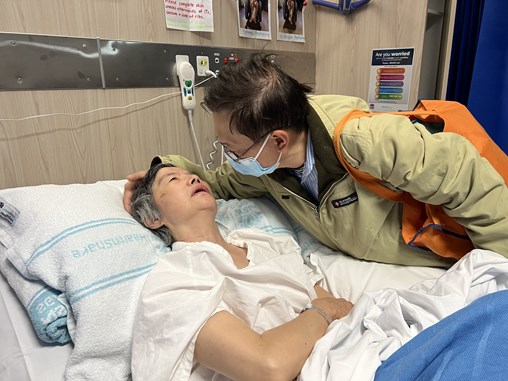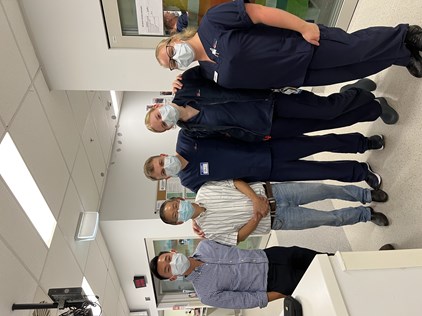A Sydney man whose family’s life has been upended by stroke wants all Australians to learn the F.A.S.T. message.
It’s been almost 12 months since the night that changed the Kung family’s life. Stephen says his mum, Connie Ho, had complained of having a pounding headache. When she collapsed on the bathroom floor, they knew something was seriously wrong.
“I was woken by a fumble in the bathroom and yelling from my Aunty. Mum’s eyes were shut, and her jaw was stiff, she was seizing up,” Stephen said.
“I was her first responder, delivering first aid, doing CPR and calling an ambulance. I was doing all of this while feeling hysterical and going into shock.
“I knew I had to get her help quickly because I had completed first aid training the week prior and learned about F.A.S.T (Face, Arms, Speech and Time).”
At hospital, Stephen’s family were told the 62-year-old had suffered a stroke. She was rushed into lifesaving surgery.
“Neurosurgeons removed part of mum’s skull to help her brain expand. It took two and a half months for her to leave the ICU. The familiar face I knew so well had changed. Mum’s hair was shaven, her eyes were closed and swollen, a tube was down her throat helping her breathe,” he said.
“I was beyond heartbroken, it was an extremely difficult and harrowing experience that has changed mum forever.
“It’s a double-edged sword, because she is so young, she has a higher chance of recovery, but it also means the remainder of her life has changed so dramatically a result.”
Ten months on from Connie’s stroke, she is regaining her ability to talk and open her eyes. Her husband Marcus Kung has been pivotal in her recovery, by regularly massaging her legs.

Stroke Foundation Chief Executive Officer Dr Lisa Murphy said stroke can happen to anyone, at any time.
“When a stroke strikes, it attacks up to 1.9 million brain cells per minute, so time is of the essence when it comes to getting emergency medical treatment,” Dr Murphy said.
“The faster people can recognise the signs of stroke, the faster they can get specialist treatment which in turn leads to better recovery and health outcomes for the patient.
“Stroke Foundation’s aim is for someone in every workplace and household to know the F.A.S.T acronym. I’d encourage everyone to learn these signs and tell their friends and family because we know being informed truly saves lives and leads to faster treatment.”
If you suspect someone is having a stroke, think F.A.S.T. and ask these questions:
Face: Check their face. Has their mouth drooped?
Arms: Can they lift both arms?
Speech: Is their speech slurred? Do they understand you?
Time is critical. If you see any of these signs call triple zero (000) straight away.
More than 80 per cent of strokes display at least one of the F.A.S.T. signs. Other signs are here.







